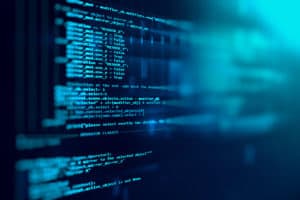 During a panel discussion on the impact of distributed ledger technology (DLT), panellists from Union Investment, Six Digital Exchange and LedgerEdge provided insights into how the technology has helped transform the way people trade.
During a panel discussion on the impact of distributed ledger technology (DLT), panellists from Union Investment, Six Digital Exchange and LedgerEdge provided insights into how the technology has helped transform the way people trade.
Summarising the benefits of DLT, David Nicol, chief executive of LedgerEdge, said: “We use DLT as a tool to give users more control of their data, more nuanced workflows and, in the end, better execution.”
Christopher Hock, head of multi-asset trading at Union Investment, highlighted three key topics that the firm was focusing on in this space. This included: “DLT from an infrastructure perspective, trading traditional assets in a tokenised format and finally, utilising the opportunity to significantly see an expansion of the trader universe.
“Going forward we will have some chances to have non-fungible products which fit into our investment universe to make thing more tradable.”
“This new DLT-based platform allows us to think and develop new user business cases,”
Given developments within the DLT, blockchain and tokenisation space over the last few years, panellists suggested that the industry should maintain a forward-looking approach to allow innovation to continue to exist.
“This new DLT-based platform allows us to think and develop new user business cases,” said Martin Weithofer, head of EMEA sales and relationship management at Six Digital Exchange.
“Market participants should not make the mistake of simply copying and pasting what has been done over the last five years. The next five to ten years will look different and this new technology, this new platform, allows the implementation of much more user business cases.”
Looking at future developments and innovation with this space, Hock mentioned increased focus on a topic which may go live in the next two years – tokenised funds. “At the moment, all our fund products are still based on paper documents which are with a central securities depository (CSD). Going forward we will also consider issuing tokenised funds as well as a non-fungible token at later stage,” said Hock.
“Looking at token economy, we clearly consider this to be a key game changer with a highly disruptive potential and for us it’s really key to be involved in all these developments.”
Echoing Hock’s sentiments on how fund products are still handled manually, Nicol highlighted aims to approach the corporate bond trading market with a fresh perspective.
“We looked at the fact that in 2020, 30-40% of trades were still handled over voice or chat systems, rather than electronically,” said Nicol.
“We thought the corporate bond market was quite standardised. It’s a standard product, there’s a lot of automation potential there, but there’s still this kind of interaction and trust problem that keeps many of the functions very manual, making many of the interactions rather inefficient. We broke it down and we want to give users on both sides of the market a fundamentally better experience.”
Speaking on the importance of continued innovation and development, Hock concluded that “for the last couple of years, technology has been playing a key role in the trading space and without technology, without heavy investments in technology, you can’t run trading successfully regardless of whether you are buy-side or sell-side”.